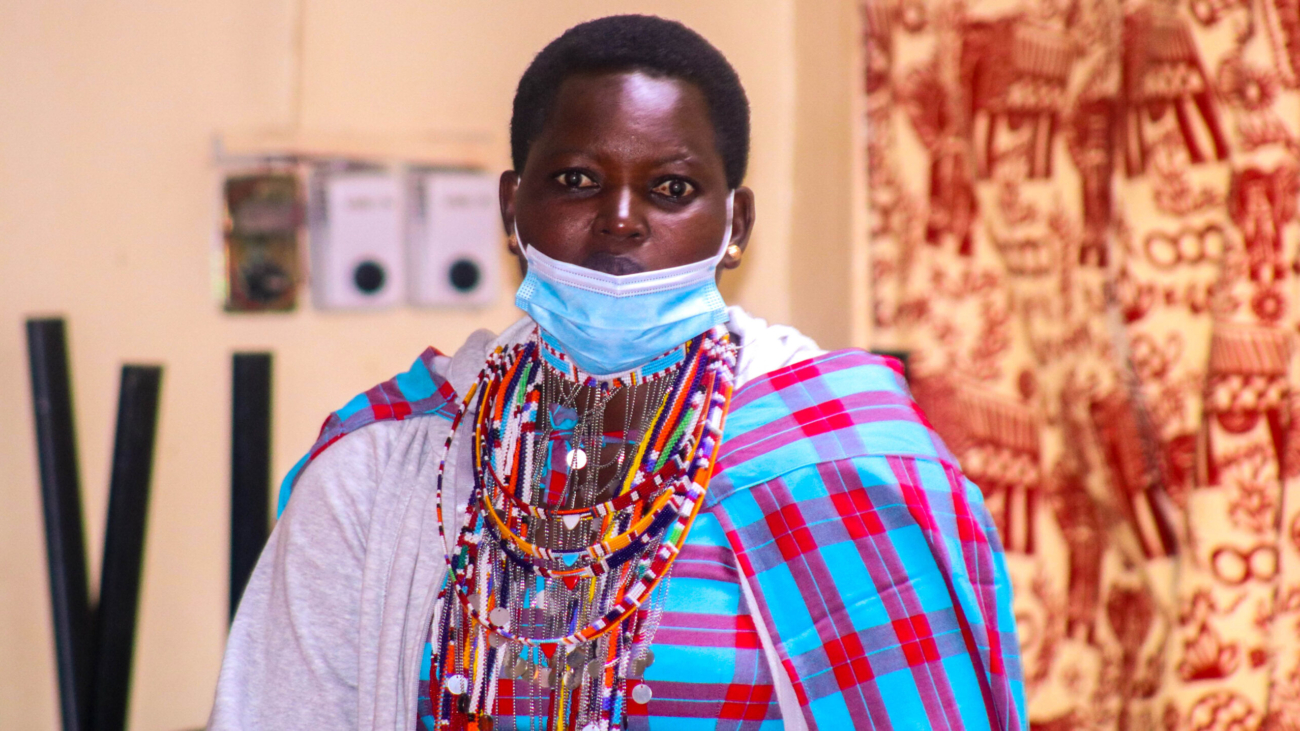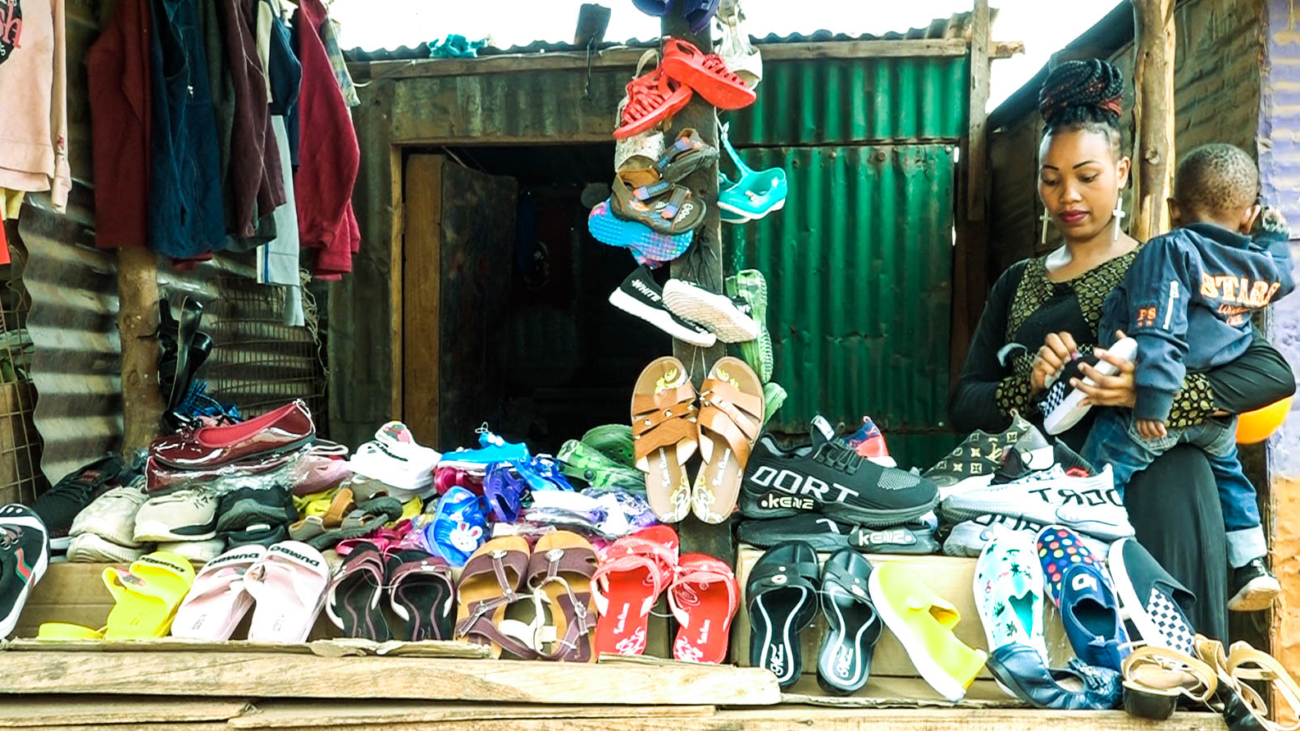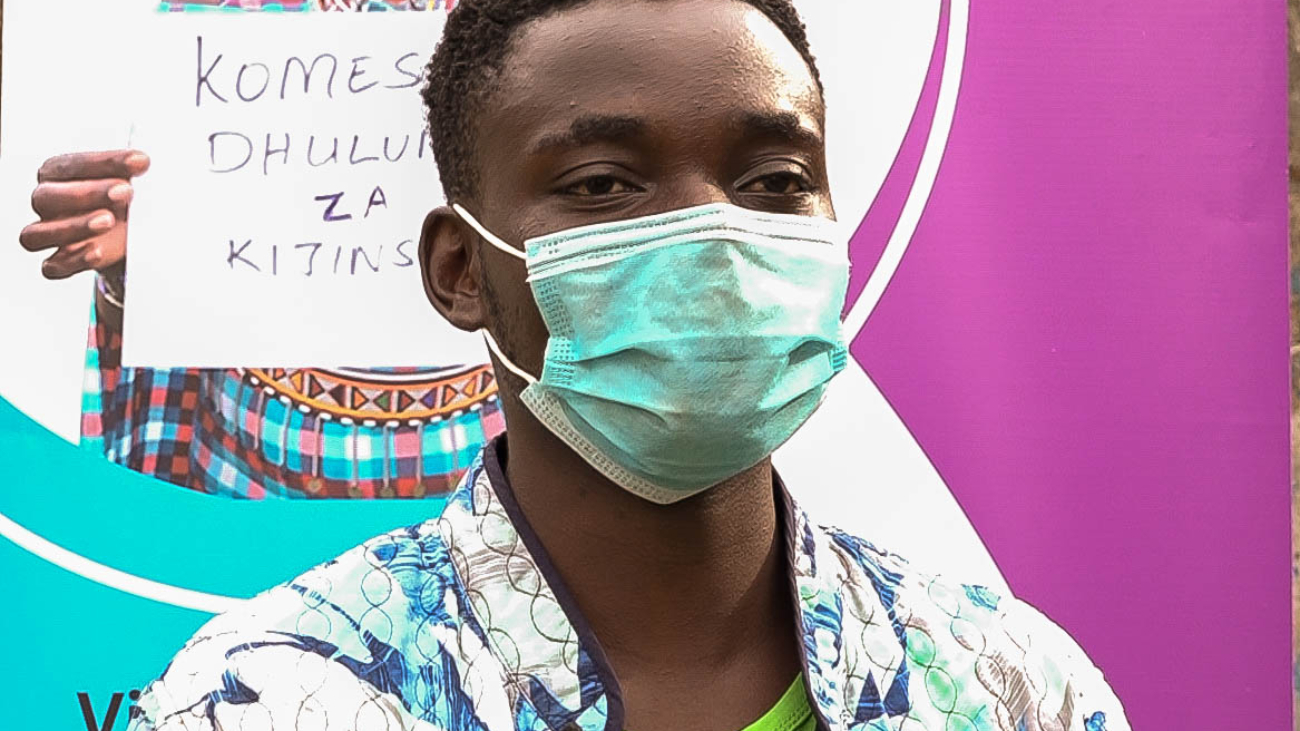Namanga women cross -border traders have called upon the Collaborative Centre for Gender and Development (CCGD) and its partners to assist them establish a child care Centre so as to enable them to focus on their work better.
Speaking during consultative meeting with officials from CCGD, the women said they are eagerly waiting for the establishment the childcare Centre adding that the move will emancipate them from the intense child care work which bar them from actively engaging in their business.
Namanga Women Cross-Border Traders Association Chairperson, Alice Lemomo who engages in the Ushanga(beads) business noted that women cross-border traders have been facing various challenges since the outbreak of COVID-19 pandemic owing to the measures the government has put in place to curb the spread of the pandemic. Further, Lemomo cited the burden of child care as another big challenge they are facing as women cross-border traders.
“Some of these women have young children and many of them cannot afford the services of house help hence they carry the children to their business. This in turn affect the business because they cannot actively attend to their business with children on their back,” she said.
Namanga women cross -border traders have called upon the Collaborative Centre for Gender and Development (CCGD) and its partners to assist them establish a child care Centre so as to enable them to focus on their work better.
Speaking during consultative meeting with offcials from CCGD, the women said they are eagerly waiting for the establishment the childcare Centre adding that the move will emancipate them from the intense child care work which bar them from actively engaging in their business.
Namanga Women Cross-Border Traders Association Chairperson, Alice Lemomo who engages in the Ushanga(beads) business noted that women cross-border traders have been facing various challenges since the outbreak of COVID-19 pandemic owing to the measures the government has put in place to curb the spread of the pandemic. Further, Lemomo cited the burden of child care as another big challenge they are facing as women cross-border traders.
The chairperson welcomed the plan by CCGD and its partners to assist them establish a childcare Centre in Namanga border saying their children will find a place where they can grow physically, spiritually and socially.
“The opening of the child care centre will be of great importance not only to us but also to our businesses. As traders, we will have enough to time attended to our businesses resulting to increase in profit margins and general growth of our businesses,” she said.
She expressed her gratitude to CCGD for coming to the aid of women by easing the burden of childcare and thereby providing them an opportunity to actively engage in business.
“We want to thank CCGD for coming up with an initiative to establish a child care centre for Namanga women cross-border traders. Women are really struggling to run their business while at the same time take care of children. Some of them cannot afford services of a day care or house help while others have children with disabilities therefor the centre will bring a relief to us,” she reiterated.
The consultative forum was attended by 45 women traders from Namanga border in Kajiado County.
Child care remains a major burden to women and girls as society pin them with the responsibility of early childcare. Women continue to experience the burden of unpaid care work disproportionately due to insufficient national and county policies and program to address unpaid care work in general.





